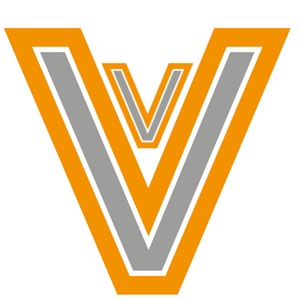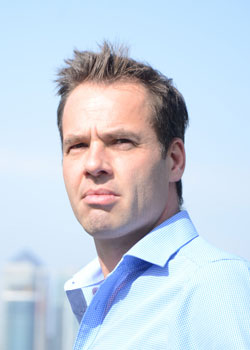
23.09.2024 - 25.09.2024, Zürich
A 3-day interactive course to gain Practitioner’s level skills for Integration, Verification and Validation (IV&V) of complex technical systems.
The training course is focused on both understanding and applying key principles, methods and processes consistent with the ISO 15288 standard and the INCOSE Systems Engineering Handbook, enabling course attendees to be prepared for working within and / or leading the IV&V phase for technical complex systems.
The course learnings are delivered through classroom teaching, short discussions, short exercises, and a facilitated group workshop.
• Know the key concepts and terminology used in IV&V (Integration, Verification and Validation).
• Understand and apply key IV&V aspects from the ISO 15288 standard.
• Understand processes that contribute to IV&V in the design, development, acceptance, and operation of complex technical systems.
• Design and manage IV&V in time efficient interaction with programme logistics.
• Practice the preparation of the IV&V plan.
• Awareness of the main types of tests used in complex system verification.
• Know the use of analysis, inspection, and design review methods for verification and validation.
• Know the possibilities for re-using existing qualification within complex systems.
• Understand the IV&V Change Approval Board.
• Integration, Verification & Validation (IV&V) Engineers
• Manufacturing, Assembly, Integration & Test (MAIT) Engineers
• Systems engineers
• Development Engineers needing a strong awareness of IV&V
Early Bird: 2025 CHF | Regular: 2250 CHF
3 tage

Mike hat in unterschiedlichen Rollen in der Produktentwicklung vorwiegend im Bereich der Verteidigungs- und Luftfahrtindustrie gearbeitet, nachdem er seinen Master-Abschluss in Photonics und Optoelektronischen Geräten an der University of St. Andrews, UK, erhalten hat.
Mike hat immer in der Rolle des Systems Engineer gearbeitet und führte technische Entwicklungen mit interdisziplinären Teams. Er arbeitete fünf Jahre bei RUAG Space, Zürich. Während dieser Zeit wechselte er in das Management und führte die Systems Engineering Gruppe in die Produkteinheit Optoelektronik und Instrumente. Darüber hinaus gab er Systems Engineering Schulungen für Mitarbeiter des ganzen Unternehmens.
Mike übernahm anschliessend die Leitung des Systems Engineering Teams bei Roche Diagnostics International in Rotkreuz, Schweiz. Er bringt nun leidenschaftlich seine Erfahrungen und Kenntnisse der Systems Engineering an die Healthcare-Branche ein.
Mike ist begeistert von der Produktentwicklung und vor allem der Anwendung von Systems Engineering Methoden. Er ist einer der Gründer der Swiss Society of Systems Engineering (SSSE) und nimmt regelmäßig an IET- und INCOSE-Vorträgen / Seminaren teil. Er organisiert SWISSED, die Jahreshauptkonferenz der Schweiz für Systems Engineering.
Mike präsentiert regelmäßig auf Engineering-Konferenzen, darunter vor kurzem am SWISSED, UpFront Thinking und das INCOSE International Symposium.
Mike hat sowohl die CEng (IET 97325920) als auch die CSEP-Akkreditierungen erworben.


Marco has had many roles in Systems Engineering: Professor at a technical university, and Consultant for and Employee in the development of complex systems. He was the managing director of projectglobe - a boutique consultancy firm specialising in Model Based Systems Engineering (MBSE) and Information Management (IM) to support innovation driven engineering projects. Major customers are the fusion research community, the automotive industry, and 3D laser-welding and robotics companies.
Marco holds a PhD in nuclear engineering and a Masters in Operational Research. In his role as research fellow at Europe's largest fusion laboratory, JET near Oxford, he devised a novel diagnostic system, which earned him a world-wide patent. Marco then worked for the automotive industry managing product development and launch projects for the emerging markets of Eastern Europe and Russia before co-founding projectglobe with the purpose to devise novel methodologies, frameworks and tools that combine MBSE with IM to enable effective innovation and product development.
Together with partners from industry and academia, projectglobe have developed CLOSE - a Closed-Loop MBSE methodology based on robust semantic reference model. This model allows to automatically generate the required engineering artefacts in the correct format for SE teams and domain experts alike. The loop is closed by so-called "Experimentable" Digital Twins that provide in-the-loop feedback for all developers throughout the whole product life cycle. CLOSE runs on projectglobe's fractal data engine and thus allows for unlimited scalability in managing all project information.




Dr Kevin Howard has more than 40 years’ experience in engineering. He initially worked in radar and radio frequency systems, and for the last 25 years has focused on Systems Engineering and managing complexity. He has been Chief Engineer for a range of systems ranging from military vehicles to space-based sensor systems. He has been VP Systems Engineering for a Global organisation providing safe city and big data technology. He now provides Systems Engineering consultancy, and as Engineering Director helped establish Optima Systems Consultancy Ltd as one of the leading Systems Engineering specialists providing consultancy to the defence and energy sectors around the world.
Kevin has a PhD in Optimising Complex Systems, supported by Post Graduate qualifications in Psychology and Business Administration. He is a Chartered Engineer, an external examiner for Cranfield University.
